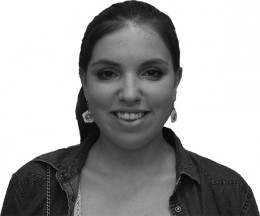
As a sophomore in college I know I still have a lot to learn, but I did not expect to learn so much from my summer job as a day camp counselor. Experiential learning can be just as, if not more, beneficial than classwork, but the dirt-covered, lice-breeding ground of 3- and 4-year-old children wasn’t exactly what I envisioned as a library of knowledge. Not only did my bosses and peers at camp prove me wrong, surprisingly, I learned much from the children themselves.
What I love so much about the pre-school children I worked with is the pure innocence they still possess. They have no filters, and their amusing, candid remarks contain hidden gems of wisdom. My personal favorite was one comment from one of my 3-year-old girls. While rambling to me about “jay jays” and “boobies,” she told me that she knew “a fat girl who has big boobies.” Slightly taken aback, I asked her if it was nice to call people fat. Her innocent little voice chimed back telling me that it’s not mean, some people just are fat.
Although funny, her remark also gave me a lot to think about. To her, calling a girl fat wasn’t meant to be funny or mean at all, she was just making a statement. She hadn’t yet been socialized to believe that “fat” is a mean word or a negative quality.
Interacting with young children revealed to me that many of our biases are far from innate, and are rather the products of cultural conditioning. One of our female campers was a tomboy. She always dressed in boys’ clothing, and told me constantly how much she hated pink. At the beginning of the summer, many of the kids asked if she was a boy. After my co-counselors and I told them she just preferred boys’ clothing, there were no further questions or problems.
One day, her mother asked me if her daughter had been bullied by any of the kids for wearing boys’ underwear to camp. And honestly, not a single child took issue with this behavior. On the other hand, many of the other counselors and adults working at the camp would always make comments on it. I reassured her mother, and once again it made me appreciate the innocence of my campers.
Working as a day camp counselor can help college students grow as professionals and individuals. After two summers working at a day camp on Long Island with toddlers, I’ve grown much more than I originally thought possible. The unique blend of working with older bosses, peers and children a quarter of my age has been an enlightening experience. My campers cause me to question how much hatred in the world is inherent and how much is learned. I hope, although I know it is unlikely, that they do not grow to discriminate or be cruel to others.


